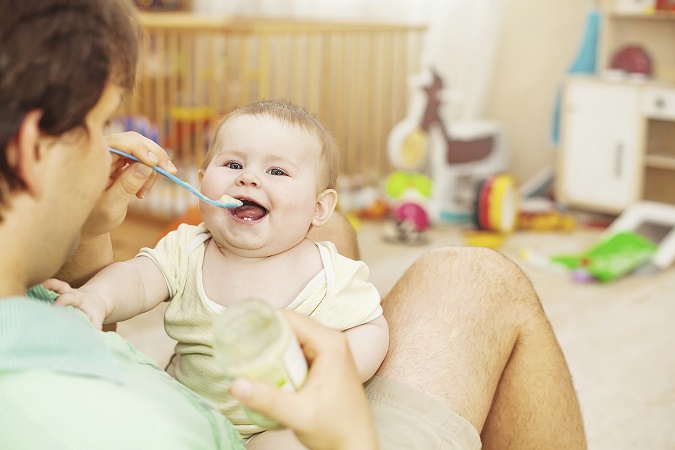February is National Children’s Dental Health Month. The National Children’s Dental Health Month is a…
Caring for Baby’s Teeth Proactively
It is not uncommon for first-time parents to wonder when they should start brushing their baby’s teeth (or tooth!). While regular brushing is an extremely important habit to get started young, there are many other factors to take into consideration concerning your child’s oral health. Let’s take a look at three important questions about baby’s teeth – the answers may help you become more proactive about keeping your child’s teeth and gums healthy.
When Should I Start Brushing Baby’s Teeth?
As early as three months old, even before your child has started teething, you can get into the habit of brushing your child’s gums very gently with a toothbrush and paste designed for infants. If you don’t want to be bothered with training toothpaste, however, you can wait until those first two teeth pop through before starting toddler toothpaste. If you choose a fluoride-free toothpaste, make sure to switch to a fluoride version by the time your child’s full set of baby teeth comes in.
Do Pacifiers Disrupt Tooth Development?
For the first few months of life, many parents find that a pacifier offers the best solution when their tiny infant’s powerful urge to suckle continues after their belly is full. Ideally, babies should be done with the pacifier before their teeth start to come in, but this isn’t always practical for all parents.
The fact is, pacifier use can move teeth around in the mouth – but as long as the baby is weaned from the pacifier by about age two, their teeth should re-align themselves correctly within the year. The same is true of bottles and thumb sucking. These activities can also change the shape of the roof of baby’s mouth, making problems like the dreaded lisp more likely, but again, the damage won’t be permanent if these habits are ended by age two.
Is Cow’s Milk Bad for Baby’s Teeth?
At some point, every baby has to be weaned from breastmilk or formula and switched to cow’s milk. But are there any associated negatives for baby’s teeth when you make the switch? Experts agree that drinking cow’s milk is actually very good for baby’s teeth, as long as your child doesn’t drink it in their crib. If you must give them something to drink for bedtime, choose water instead of milk – the natural sugar in milk can cause early tooth decay if it sits in baby’s mouth while they sleeps. Use whole milk instead of skim, as skim milk often contains added sugar while whole milk does not.
For more information on how best to care for your baby’s teeth, or to set up an appointment for baby or yourself, give us a call right away – the friendly staff here at Cooper Family Dentistry will be more than happy to help.

